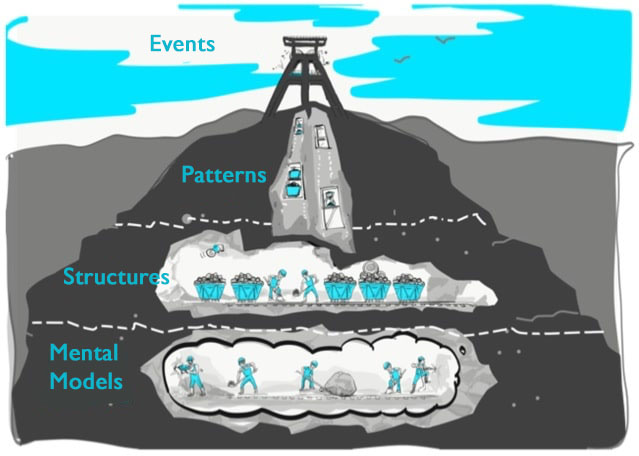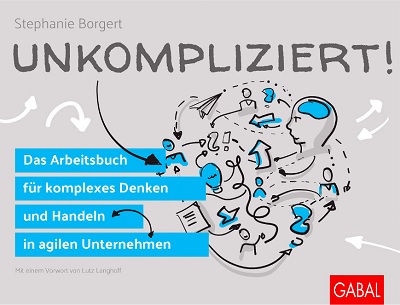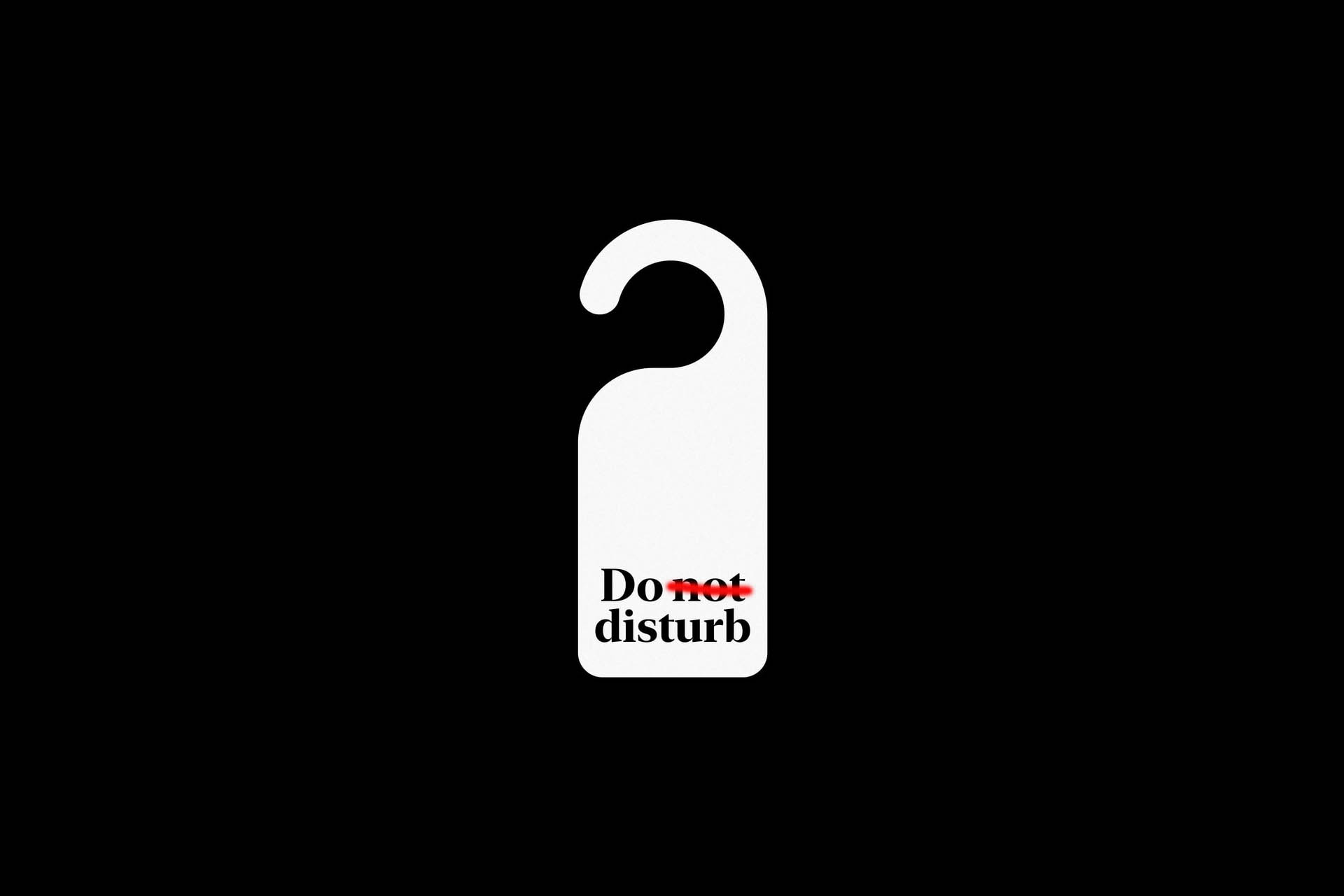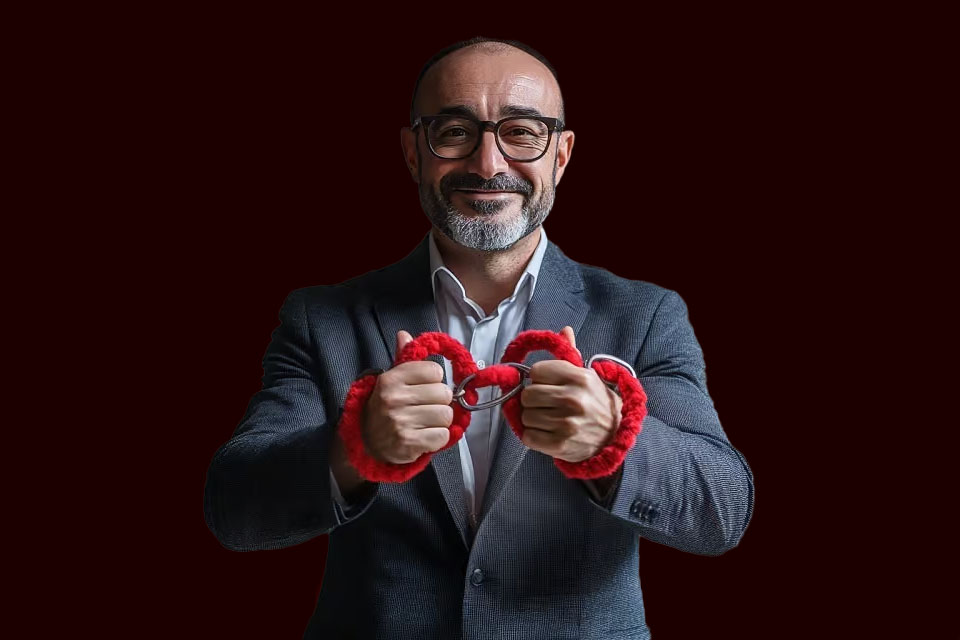“We need training!”
You can sit on a dead horse, but you can’t move forward.
What do you do when things go wrong in your company? You book training and seminars for managers and employees. Whether error culture, the right way to deal with conflicts, team performance, resilience or leadership, in many companies there are catalogues and programmes for all cases. So far, so normal you may think. So far, so ineffective, I might reply.
If you want to work on your organisation, address culturally relevant issues and thus enable changed thinking and action, you’d better stomp out your training catalogues and start an intentional discourse.
What seems to be so easily formulated here turns out to be a fundamental “question of faith” in several acts upon closer reflection.
Act 1: “When the individual is at the centre”
The main target of the diverse training and seminar offers is the individual person. After all, many a company is centred around him or her, if one trusts the statements of the respective HR department. So the individuals are trained and made fit with all the hip, hip methodologies and techniques. Firmly in the belief that once everyone has attended the “positive error culture” course, it will take hold in the organisation. What a mistake! If this were true, then an organisation would be nothing more than the sum of its parts (i.e. people) and there would be no spirit, life of its own or “our culture”.
An organisation is above all a communication system. It consists of communication and not first and foremost of people. The individual is interchangeable and makes no difference to the organisation, its culture and the established communication. And no, that does not mean not ascribing importance to people or disregarding them. However, at the level at which we deal with culturally relevant aspects, we focus better on the communication system than on the individuals. Because we look at the supra-individual, collective patterns and routines.
Yes, but can all the “mindset training” offers be wrong? Yes, they can and that brings us to the next act.
Act 2: “Our agreement to work together”
Employees should please have the right, positive and naturally agile growth mindset. Those who (supposedly) don’t have it are trained, coached and given personality development. What an encroaching imposition! For one thing, the basic idea of “organisations are made up of people” mentioned in Act 1 lies beneath this approach. For another, from this point on it becomes unfair to the individual.
Let us consider an example: Mr. Meyer, a manager in an established company, was trained in human-centred leadership (or any other leadership style) in a programme lasting several weeks. Motivated to the core, he now begins to make his own mistakes known, to communicate in an empathic, non-violent way and to leave many decisions to the employees. What will happen?
Will employees, colleagues in the management circle and superiors observe, get enthusiastic and tune in? Probably not, because the system in which Mr Meyer operates is still the old one. The “arrangement of cooperation”, the structure in other words, is unchanged. How mistakes are dealt with collectively, who makes which decisions, how people talk to each other – all this is structural and an individual is relegated to his or her old place faster than he or she can look. Mr Meyer has no chance unless the structure is also changed at the same time.
Act 3: “The culture we would like to have”
Many companies are now wooing new colleagues with their culture.
- “Our unique culture of trust”,
- “A culture of togetherness where people are at the centre” or
- “Our diverse culture of diversity”.
Culture as a term has long since become the stooge of PR and HR departments. Unfortunately, this also leads to the complete trivialisation of culture change and results in many training programmes that promise cultural change. What an impossibility!
The culture of an organisation develops over time, from the thoughts and actions of the collective, and at the same time has an effect on it. It cannot be changed directly. Culture is rather the reflection of an organisation. Sure, you can hang a curtain in front of it or apply decorations with a felt-tip pen, but that doesn’t change a thing about the “reflecting object”.
Culturally relevant aspects such as errors, conflict, etc. must first be brought to consciousness. It requires joint reflection on how we deal with mistakes today, what we do and think. The collective evaluation patterns come to the surface and become tangible, provided that the reflection is open and not characterised by “how we would like to be”.
In discourse, the patterns of evaluation can be considered and, if necessary, new patterns and routines in collective behavior can be agreed upon. This is by no means trivial and a promise of guaranteed success (whatever that may be) is window dressing. Organisational discourse learning is the name of this form of debate and as a mechanism it is little or not at all established in most companies. What is the reason for this? See Acts 1-3.
Act 4: “Arguing about the non-obvious”
Well, let’s put some people in the circle of chairs and let them discuss the culture of argument or cooperation. Appropriate? No, that’s too short, because it needs more depth. On the surface of “we should, we could, we ought to”, each group of people will only reproduce what they have already adopted as “that’s how it is with us”.
Complex thinking is the ingredient that provides depth and leads participants to the right questions and thus to the non-obvious. In order not to go beyond the scope of this blog post, here is a minimal outline of “levels of complex thinking”.
(aus: Unkompliziert!, Stephanie Borgert, 2018)¹
In our everyday work, we are usually event-driven. The budget is cut, two colleagues quit, a competitor launches a fantastic product and so on. We react to the respective event. That is good and remains necessary. If we simultaneously observe what happens over time, we move away from snapshot observation and towards pattern recognition.
Many events are not singular, but repeat themselves. They are patterns and routines that are easily recognised if we just look. They do not arise by chance, but from the given structures. The “appointment of cooperation”, all the formal and also informal structures, processes, norms and golden rules, point the way for the individual people in an organisation and determine their actions. Structures also don’t just come into being, but have their basis in mental models. What do we think about ourselves, our customers, suppliers, projects, women in leadership positions, flat hierarchies or people in general?
So if we want to reflect on “our culture”, naming individual events is not enough. We need to become aware of the patterns and routines, as well as the structure. At many points, reflecting on common stereotypes, prejudices and beliefs can also provide good insights.
Final act: Organisational discourse learning instead of training
In order to reflect and re-evaluate together in this way, a suitable format is of course necessary. A typical seminar with a trainer imparting knowledge can only come to nothing here. Organisational discourse learning means: people in small groups discuss relevant topics, illuminate diverse perspectives, take a position and form an informed opinion at the same time. They become aware of their collective evaluation patterns and go through a process of coordination in the discourse, which in the end can lead to a new positioning. It is not about quick agreement or working through, but about plurality and dealing with it appropriately. Such a format consists of diverse processes that enable new thinking and evaluation. The participants are asked to position themselves in relation to the topic, only to be irritated in their position. It is the interplay of changing perspectives, exploring one’s own / common position, common evaluation and new agreement.
This sounds exhausting and it is, because it means above all reflecting together. All participants in a group are learners and teachers at the same time. Their own discourse skills are developed and each group trains to endure diverse opinions, points of view and convictions. The discussion becomes much more profound. Organisational discourse learning is the way to bring culturally relevant aspects into communication and to invite reorientation.
And now we are supposed to make time and space available for this? What that costs … It’s not so bad, because you can cut out a lot at the same time. You save many of your standard trainings, seminars and workshops. Because compared to all the programmes and catalogues, discourse learning can do one thing above all: create impact.
Notes (partly in German):
If you like the post or want to discuss it, feel free to share it with your network.
[1] Unkompliziert. Das Arbeitsbuch für komplexes Denken und Handeln in agilen Unternehmen
You can apply complex thinking and action to your team’s current work situation. In a specially developed qohubs cycle consisting of five 90-minute sessions, you reflect on your specific organisational context, practise it and gain a shared understanding of meaningful work and better decision-making in complexity. Here you can find details of the qohubs cycle on complex thinking and action in agile organisations.
You can find more perspectives from Stephanie Borgert on the t2informatik Blog:
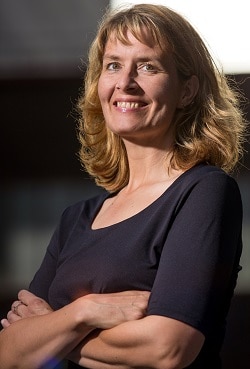
Stephanie Borgert
Stephanie Borgert is a complexity researcher and engineering computer scientist. Managing complexity and dynamic, complex projects are her passions. This is because they include essential aspects such as leadership, management, communication, mindfulness and systemic thinking.
Together with her customers, she repeatedly finds that it is often not the large, styled and strict processes, but rather the many small adjusting screws in a system that make it more goal-oriented, appreciative and successful.
Stephanie Borgert, a former business columnist for the Frankfurter Rundschau, has now published eight books. Her book ‘Unkompliziert!’ was a business bestseller in 2018.
In the t2informatik Blog, we publish articles for people in organisations. For these people, we develop and modernise software. Pragmatic. ✔️ Personal. ✔️ Professional. ✔️ Click here to find out more.
